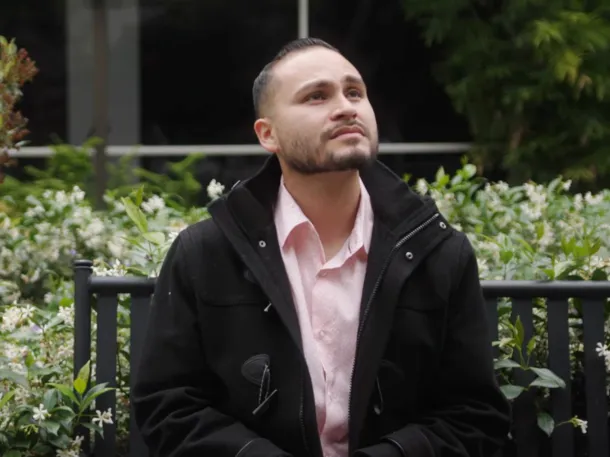- Home
- >
- APU Articles
- >
- News Article
Experiencing Transformational Healing at APU
November 10, 2023 | Category Military Education, Theology | Written By Saundri Luippold

Lopez grew up in Rosemead, California, spending his teen years playing football at San Gabriel High School. He continued pursuing the sport at the community college level, before he enlisted in the U.S Marine Corps on Dec. 15, 2009. The events surrounding 9/11 and the war on terrorism provided him with motivation to serve his country. He also looked to the military for a fresh start, hoping to turn his life around and gain direction.
“In boot camp, they break you down and build you up, tearing down the identity you had before and giving you a new one,” Lopez said. His first experience in combat was during a deployment in Afghanistan. The setting he entered affected his life dramatically as he witnessed violent, tragic events that most people see only in films. Lopez’s second deployment was in Okinawa, Japan, where he conducted jungle warfare training, sailing across the Pacific to train the Thai army.
When Lopez’s contract ended in December 2013, he decided not to reenlist, instead choosing to pursue a college degree. Like many veterans who return home, the transition back to civilian life proved challenging. Lopez tried to move past the trauma he had experienced, focusing on his education. After earning an Associate of Science in Wildland Fire Technology at Rio Hondo College, Lopez transferred to APU because of his sister’s encouragement—she served on an APU mission trip as a volunteer in high school and experienced the university’s special community. Lopez was accepted one week before the start of the fall semester, and there was only one seat left in one of the classes he wanted most, which he took as a sign that God was calling him to say “yes” to APU.
Lopez’s “yes” to APU became a “yes” to a multitude of opportunities that changed his life. As a communication studies major, he developed skills that increased his confidence in conversations and helped him build rapport with others. After an incredible first year deepening friendships and being immersed in the community, Lopez decided to live on campus instead of commuting.
“I loved living on campus,” he said. “You’re always there and getting involved. You get to experience so many activities. You build relationships and they continue to grow while you develop spiritually and personally.”
During his time at APU, Lopez noticed a healing in his life. There had been times he would cry by himself in his apartment, calling out to God in despair, but eventually his thoughts were overcome with the desire to do God’s will, to pray more, and to talk to his peers about Jesus. “I had this burning fire for God,” he said. Waking up each morning, Lopez would ask the Lord how he could help others heal through Christ’s love.
Lopez found an opportunity to help others by serving as student president of the Office of Military and Veteran Services. By developing relationships with the staff, and with the students who reached out for resources, Lopez played an integral role in helping veterans create a sense of belonging in the APU community. He also served as a resident advisor in University Village, hosting a weekly Bible study there, where he met his wife, Shawnty Lopez, MDiv ’21, MS.
After graduating, Lopez began a career in real estate, using what he learned in his classes to create connections with clients and ultimately spread Christ’s love. “APU was truly transformational for me,” said Lopez. “APU is where I found my voice and calling to serve God and others through a community that cares.”